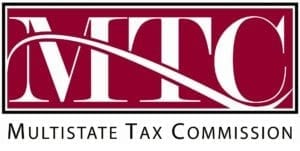Multistate Taxation Commission’s (MTC) Workgroup Meeting-Wayfair vs. South Dakota
The MTC had its initial meeting for the Wayfair Implementation and Marketplace Facilitator Work Group on September 5th. We are a few chosen outside businesses included in this workgroup, along with states, large corporations, and other sales tax firms.
You can learn more about the MTC work group’s agenda here.

The MTC.gov workgroup, which includes states, Sales Tax System, and others, was formed to help clarify sales tax responsibilities for sellers post Wayfair vs. South Dakota.
After the call, I learned that this is a knowledgeable group, and this will be an ongoing process over a few months.
The first step was to address and discuss all issues. These issues included the definition of a marketplace facilitator, what happens if they process payments or not, who should collect the sales tax, who remits it, economic nexus, income tax nexus, state returns, the sales tax registration process, and more.
There are three tax camps in general:
- The states attempting to make changes within the marketplace. They vary greatly in many of their definitions regarding what creates nexus for both sales and income tax. As well as this, they differ on how to carry out the collection process.
- Sales tax firms attempting to support their clients with the entire process better. This includes getting registered for sales tax permits, filing sales tax returns, and simplifying a seller’s process.
- Groups representing marketplace sellers attempting to place 100% of the responsibility of sales tax collecting and remitting on the marketplace, including the ability to allow all sellers to move forward without paying any past sales taxes.
New rules may come out to simplify what a seller’s responsibility is in the future. However, even then, you still have a responsibility to the current understanding and interpretation by the states. If you disagree, are you able to hire a tax attorney to fight the state? Yes, but that is expensive.
One reason for the groups to form is to represent a large group of sellers and have to input for new legislation. In the end, this will be a slow process of clarifying the definitions for a marketplace facilitator and the responsibility to collect and remit sales tax.
A risk to you, the seller: If you are in the third group, hoping that all past sales tax will go away and the states will have the marketplace facilitator collect, remit and file sales tax returns, you may be in for an unfortunate shock. Many of those events are not likely to happen.
More states may take on the lead by Washington and collect and remit sales tax on your behalf. Although this is true, you still need to be registered and file a sales tax return. The states are not likely to make a statement that past sales tax was not required. How states determine to go after past sales for past sales tax due may vary greatly.
Washington says you are responsible for all sales tax due before Jan 1, 2018. You are taking a risk that you will pay sales tax out of your pocket for every sale.
If you owe $5K in sales in a state or owe $500 in past sales tax, perhaps it is not time to register for a sales tax permit. It would be best to start to file on a quarterly or annual basis. However, if you are above this amount, you may want to register and let your seller pay.
Recommended approach: Get in compliance with sales tax, apply for your sales tax permits, start to collect and remit. If laws change to the best-case scenario, then you can close out your sales tax permits.
More will come on this topic as our next MTC.gov meeting is set for early September and will evolve weekly.
